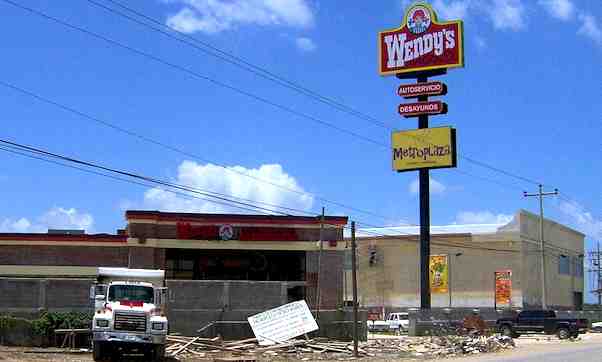
Wendy’s organizational culture is a defining factor in how customers, employees, and investors view the business. A company’s organizational culture is the combination of values, traditions, and expectations that affect employees’ behaviors. At the hamburger restaurant chain, human resources are developed to reinforce the company culture. This culture is based on Wendy’s business needs and aims for competitiveness. As one of the biggest firms in the global fast-food restaurant industry, the company uses its corporate culture to optimize employee performance and customer satisfaction. This condition supports Wendy’s competitive strategies and growth strategies, as well as related business goals and strategic objectives.
Wendy’s develops its organizational culture to add to its competitive advantages. Competitive advantages, such as the ones enumerated in the SWOT analysis of Wendy’s, enable the business organization to compete with other foodservice firms, including McDonald’s, Subway, and Burger King, as well as Starbucks. This work culture motivates employee behaviors that contribute to customer satisfaction and Wendy’s satisfactory business performance.
Features of Wendy’s Organizational Culture
Wendy’s organizational culture adjusts and adapts through the years to suit market conditions. However, the company maintains the original principles and values of the business. The following are the primary characteristics of Wendy’s organizational culture:
- People-first attitude
- Emphasis on quality
- Ethical action
People-First Attitude. People are a top priority in Wendy’s organizational culture. The company’s objective is to ensure that all stakeholders are considered. Wendy’s believes that people are the foundation of its business. The fast-food company integrates the needs of employees, customers, and business partners into its policy development processes. Employees are expected to ensure that people’s concerns are considered. Thus, this company culture facilitates effectiveness in developing human resources and Wendy’s corporate social responsibility (CSR) and ESG programs.
Emphasis on Quality. Wendy’s vision statement and mission statement highlight the importance of quality. This factor is also integrated into the company’s organizational culture. The company believes that quality is the main selling point of its service and food and beverage products. Based on this work culture, the company continues to innovate with high quality to attract consumers to its restaurants around the world. Employees are expected to adhere to high quality standards. In this way, Wendy’s business culture supports competitiveness focused on product/service quality.
Ethical Action. Wendy’s includes ethical action in its organizational culture. This cultural trait is viewed as a determinant of the company’s ability to address needs, rules, and expectations. Wendy’s has three main thrusts in this component of its company culture: (1) honesty, (2) integrity, and (3) respect for one another. These virtues influence employees’ decisions. The restaurant company believes that the business and employees are more likely to achieve high performance by applying these principles. Thus, Wendy’s business culture also supports ethical conduct and helps prevent illegal activity.
Wendy’s Organizational Culture: Advantages & Disadvantages
An advantage of Wendy’s work culture is its emphasis on quality, which leads to better outcomes, such as high-quality products. High-quality food, drinks, and service protect the business from the competitive pressures described in the Five Forces analysis of Wendy’s. Another advantage is that this business culture addresses the company’s corporate social responsibilities. However, a major disadvantage is that it does not integrate flexibility. Also, the company’s organizational culture does not directly include leadership in the foodservice business organization. Nonetheless, leadership is facilitated through the divisions, departments, and groups of Wendy’s organizational structure (company structure). Also, the emphasis on quality indirectly implies consideration for excellence and leadership in the foodservice company’s organizational output.
References
- Nainggolan, T. M. N. (2024). Analysis of factors affecting organizational work culture in companies. The American Journal of Interdisciplinary Innovations and Research, 101-107.
- Taking Care of the Wendy’s Family.
- The Wendy’s Company – What We Value.
- The Wendy’s Company – Who We Are.
- Todorova, T. (2024). Corporate culture and corporate strategy: Some economic aspects of the modern organisation. International Journal of Business Performance Management, 25(1), 147-158.
